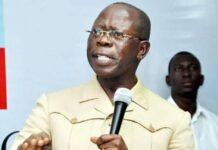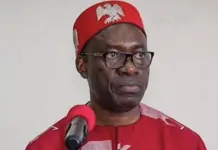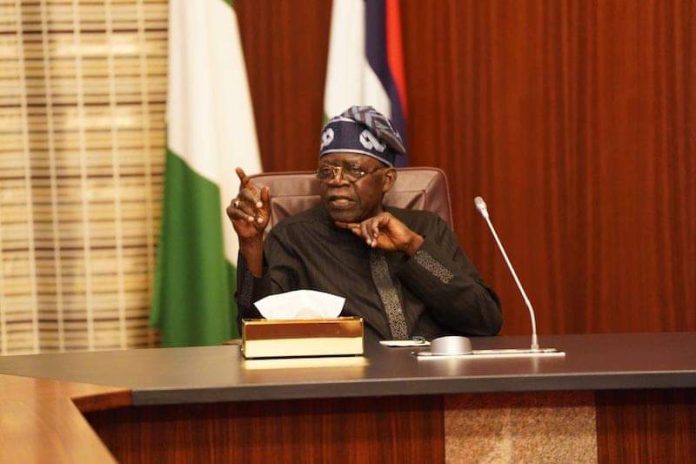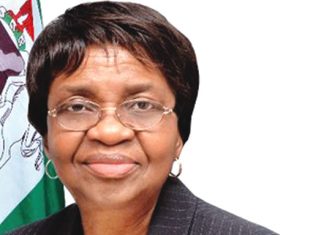In order to promote inclusive growth and restore public confidence, President Bola Ahmed Tinubu has reaffirmed his administration’s dedication to openness and fiscal restraint by announcing that the money saved from the elimination of gasoline subsidies is being reinvested in strategic sectors.
At Monday’s National Conference on Public Accounts and Fiscal Governance, which was organized by the Senate and House of Representatives Public Accounts Committees (PACs), President Tinubu, through Minister of State for Finance Dr. Doris Nkiruka Uzoka-Anite, stated that the decision to eliminate the fuel subsidy was tough but essential to realigning the country’s fiscal priorities.
“Nigeria spent more than ₦4 trillion on gasoline subsidies in 2022 than we did on capital projects that year. In addition to being unsustainable, Tinubu said, “such a fiscal pathway was unfair, favoring the wealthy, encouraging cross-border smuggling, and fostering systemic inefficiencies.”
He pointed out that the subsidy’s removal has freed up funds that are now being used for essential infrastructure development, targeted economic projects, increased social protection programs, and upgrades to mass transit.
He went on to say, “We have strengthened our fiscal buffers, increasing Nigeria’s resilience to external economic shocks.”
In his description of fiscal governance as the “foundation of national growth,” Tinubu emphasized the significance of accountability, transparency, and wise resource management, noting that a country’s riches is meaningless without these principles.
The president highlighted recent legislative reforms in the tax system intended to streamline procedures, digitize revenue collection, expand the tax base, and enhance the ease of doing business, while also acknowledging historical fiscal inefficiencies and reliance on oil revenue.
These tax reforms are essential to our national transformation and go beyond simple administrative adjustments. He declared, “We are constructing a self-sufficient, diverse economy that is no longer exclusively dependent on oil.”
Tinubu cited strategic industries that are currently reaping the benefits of fresh investments and reform-driven attention, including manufacturing, agriculture, technology, renewable energy, mining, and the creative sector.
In order to assist small and medium-sized businesses (SMEs), increase domestic production, and promote non-oil exports, he also mentioned the recently established National Credit Guarantee Company.
Regarding monetary policy, Tinubu noted better coordination between monetary and fiscal authorities and praised the Central Bank of Nigeria’s (CBN) efforts to stabilize the currency and reduce inflation.
In order to improve accountability, he emphasized that government transparency cannot be compromised and cited the digitization of public financial management through platforms such as IPPIS, GIFMIS, and the Open Treasury Portal.
These tools enable citizens to access real-time financial data, hold leaders responsible, and track public spending. He emphasized that we need to shift from opacity to openness.
Reminding them that oversight is a constitutional duty and not a partisan tool, the president urged the National Assembly, in particular the PACs, to carry out their oversight responsibilities with independence and honesty.
Value for money must be reflected in every naira. “The interests of the people must be served by budgets,” he said.
Additionally, he urged the judiciary, civic society, and media to take an active role in calling for budgetary restraint and promoted citizen participation in governance.
Akpabio Issues a Warning Regarding Increasing Legal Non-Compliance
In a warning against the increasing disdain for legislative summonses by public officials and agencies, Senate President Godswill Akpabio, through Senator Abdul Ningi, urged PACs to exert their constitutional duties under Sections 80, 81, and 88 of the 1999 constitution.
“Anyone can be called by PACs to explain how public funds are being used.” “It is a clear insult to democracy and undermines the rule of law to refuse to appear before them,” Akpabio stated.
He criticized the MDAs’ increasing disregard for monitoring and called on the PACs to reaffirm their importance by conducting in-depth research and value-based evaluations of public spending.
To assist lawmakers in addressing oversight issues, particularly with regard to intricate organizations like the central bank, NNPC Limited, and FIRS, Akpabio asked for enhanced technical assistance and digital technologies.
“This conference needs to go beyond rhetoric; it should equip lawmakers with practical plans to improve fiscal governance,” he stated.
More than N300 billion in unrecovered public funds: Abbas Issues a Warning
House Leader Julius Ihonbvere spoke on behalf of Speaker of the House of Representatives Rt. Hon. Abbas Tajudeen, who criticized Nigeria’s inadequate audit enforcement, revealing that more than ₦300 billion in audit queries are yet unanswered.
“We need to stop this culture of ignoring audit advice. Financial violations must have repercussions,” he stated.
He pointed out that in order to guarantee MDA compliance, the House has moved from passive review to active enforcement, implementing follow-up procedures, digitizing audits, and using real-time tracking systems.
Read Also: Imaobong Uko Points to AFN Failures Amid Two-Year Doping Ban
Abbas stated, “Fiscal oversight is no longer a formality, it’s a strategic tool for national development,” emphasizing the House’s initiatives to make audit reports easier to read and understand for the general public.
In order to guarantee accountability at all governmental levels, the speaker also promoted a single national audit system and emphasized the necessity of ongoing oversight of budget implementation outside of appropriations.
He went on to say, “We are institutionalizing a culture of impact-based fund assessments, sectoral audits, and performance reviews.”
Wadada calls for an end to fiscal irresponsibility.
The Senate Public Accounts Committee Chairman, Senator Ahmed Wadada, emphasized that the country has been deprived of important development due to the mismanagement of public funds and urged for a national recommitment to fiscal integrity.
According to him, “Fiscal governance is the moral compass of public service; it establishes whether revenues result in prosperity or wasted opportunities.”
Wadada stated that the Senate PAC has increased supervision, held public hearings, and involved stakeholders in order to improve financial transparency, citing a recent Auditor-General report that revealed accountability flaws in multiple departments.
In order to put an end to financial malfeasance, he also promised that the 10th Senate, chaired by Akpabio, will examine antiquated fiscal legislation and strengthen cooperation between government branches.
Salam Demands Systemic Fiscal Changes
Hon. Bamidele Salam, the chairman of the House Public Accounts Committee, emphasized the necessity of a comprehensive reform of Nigeria’s fiscal system.
He asserted that rather than merely making grandiose promises, the conference, “Fiscal Governance in Nigeria: Charting a New Course for Transparency and Sustainable Development,” must produce tangible reforms.
Salam stated, “We need to firmly establish a culture in which public funds are viewed as a public trust rather than a private privilege.”
He emphasized how the nation’s public finance system is burdened by high youth unemployment, population increase, and infrastructure deterioration, and he emphasized the significance of citizen participation in budgeting and governance procedures.
Salam emphasized the need for improved financial reporting, auditing institutions, and conformity with constitutional duties while acknowledging the advancements made under Tinubu’s Renewed Hope Agenda.
Nigeria’s Fiscal Reform Leadership Is Acclaimed by AFROPAC
Hon. Medard Lubega Sseggona, president of the African Organization of Public Accounts Committees (AFROPAC), praised Nigeria for leading the continent in budgetary accountability and openness.
According to him, the conference shows a strong dedication to sustainable development and responsible financial management.
“Nigeria’s leadership role in bolstering public financial management in Africa is affirmed by this forum. He praised it as a positive start in establishing accountability-driven governance throughout the continent.
Join Television Nigerian Whatsapp Now
Join Television Nigerian Facebook Now
Join Television Nigerian Twitter Now
Join Television Nigerian YouTUbe Now






















